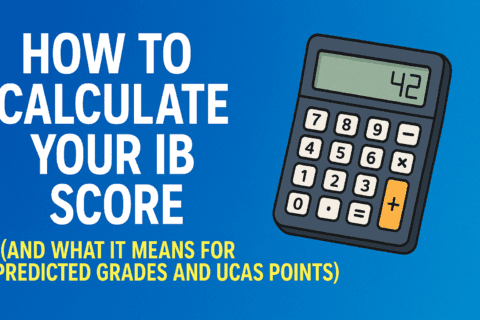🔢 Prime Number Calculator
📚 Instructions:
- Check Prime: Enter a number to verify if it's prime
- Generate Primes: Get all prime numbers up to your limit
- Range Search: Find primes between two numbers
- Nth Prime: Find the prime number at position N
- Factorization: Break down a number into prime factors
- Count Primes: Count how many primes exist up to N
- Twin Primes: Find pairs of primes that differ by 2
- Prime Gaps: Analyze gaps between consecutive primes
All About Prime Numbers: Your Questions Answered
What is a Prime Number? What is Meant by Prime Number? What is a Prime Number Definition?
A prime number is a natural number (a positive whole number: 1, 2, 3, ...) greater than 1 that has no positive divisors other than 1 and itself.
In simpler terms, a prime number is a whole number bigger than 1 that cannot be formed by multiplying two smaller whole numbers. It only has two distinct factors: 1 and the number itself.
This fundamental definition answers "what is a prime number," "what is meant by prime number," "what a prime number," "what's a prime number," "what is prime number," "what is a prime number in math," "what is a prime number definition," "what is the definition of a prime number," and "what makes a number prime."
"A prime number" refers to any number that fits this definition.
Is 1 a Prime Number? Is Number One a Prime Number? Is One a Prime Number? Why is 1 Not a Prime Number?
No, 1 is not a prime number.
While 1 is only divisible by 1 and itself (which is 1), the definition of a prime number requires it to have exactly two distinct positive divisors. The number 1 only has one distinct positive divisor (which is 1 itself).
This distinction is crucial for the Fundamental Theorem of Arithmetic, which states that every integer greater than 1 either is a prime number itself or can be represented as a unique product of prime numbers (ignoring the order of the factors). If 1 were considered prime, this unique factorization would not hold (e.g., 6 could be 2 x 3, or 1 x 2 x 3, or 1 x 1 x 2 x 3, etc.).
So, "is 1 a prime number," "is number one a prime number," "is one a prime number," "is 1 prime number," and "is number 1 a prime number" are all answered with a definitive "no." "Why is 1 not a prime number" and "why is one not a prime number" are explained by the "two distinct divisors" rule and its importance for unique factorization.
Is 1 a Prime Number or a Composite Number? Is 1 a Prime or Composite Number?
The number 1 is neither prime nor composite. It's in a special category by itself.
- Prime numbers have exactly two distinct positive divisors.
- Composite numbers are natural numbers greater than 1 that are not prime; meaning they have more than two distinct positive divisors (i.e., they can be formed by multiplying two smaller natural numbers).
Since 1 does not fit either definition, it is unique.
Is 0 a Prime Number? Is Zero a Prime Number?
No, 0 is not a prime number.
Prime numbers are defined as natural numbers greater than 1. Zero is not greater than 1. Additionally, zero has an infinite number of divisors (every non-zero integer divides 0, as 0 = 0 * n for any non-zero n), which violates the "exactly two distinct positive divisors" rule.
These questions "is 0 a prime number," "is zero a prime number," and "is 0 prime number" are all answered "no."
How to Check if a Number is Prime? How to Find if a Number is Prime? How to Know/Tell if a Number is Prime? How Do You Find the Prime Number?
To determine if a number (let's call it 'n') is prime, you can follow these steps:
- Check basic conditions:
- If n ≤ 1, it is not prime.
- If n = 2, it is prime (it's the only even prime number).
- If n > 2 and n is even (divisible by 2), it is not prime.
- Trial Division (for n > 2 and odd):
- Try dividing 'n' by odd numbers starting from 3 up to the square root of 'n' (√n).
- If any of these divisions result in a whole number (i.e., no remainder), then 'n' has a divisor other than 1 and itself, so it is not prime.
- If you test all odd numbers up to √n and none of them divide 'n' evenly, then 'n' is prime.
Why up to the square root of n? If a number 'n' has a divisor larger than its square root, it must also have a divisor smaller than its square root. So, if you don't find any divisors up to √n, you won't find any beyond it either (other than 'n' itself).
Example: Is 29 prime?
- 29 > 1. Not 2. Not even.
- √29 is approximately 5.38. We need to test odd divisors up to 5:
- 29 ÷ 3 = 9 with a remainder of 2.
- 29 ÷ 5 = 5 with a remainder of 4.
- Since no odd numbers up to its square root divide 29 evenly, 29 is prime.
These methods answer "how to check if a number is prime," "how to find if a number is prime," "how to know if a number is prime," "how to tell if a number is prime," "how do you find the prime number," "how to check whether a number is prime," and "how to check if number is prime."
Is [Specific Number] a Prime Number?
Here's a quick check for the commonly asked numbers, applying the definition and trial division method:
| Number | Is it Prime? | Reasoning (if not prime, smallest prime factor shown) |
|---|---|---|
| 2 (or "two") | Yes | Only divisors are 1 and 2. It's the smallest and only even prime. |
| 3 (or "three") | Yes | Only divisors are 1 and 3. |
| 4 | No | Divisors: 1, 2, 4. (2 x 2 = 4) |
| 5 (or "five") | Yes | Only divisors are 1 and 5. |
| 6 | No | Divisors: 1, 2, 3, 6. (2 x 3 = 6) |
| 7 | Yes | Only divisors are 1 and 7. |
| 8 | No | Divisors: 1, 2, 4, 8. (2 x 4 = 8) |
| 9 (or "nine") | No | Divisors: 1, 3, 9. (3 x 3 = 9) |
| 10 | No | Divisors: 1, 2, 5, 10. (2 x 5 = 10) |
| 11 | Yes | Only divisors are 1 and 11. |
| 12 | No | Divisors: 1, 2, 3, 4, 6, 12. (2 x 6 = 12) |
| 13 | Yes | Only divisors are 1 and 13. |
| 15 | No | Divisors: 1, 3, 5, 15. (3 x 5 = 15) |
| 16 | No | Divisors: 1, 2, 4, 8, 16. (2 x 8 = 16) |
| 17 | Yes | Only divisors are 1 and 17. |
| 19 (or "19 prime number") | Yes | Only divisors are 1 and 19. |
| 21 | No | Divisors: 1, 3, 7, 21. (3 x 7 = 21) |
| 23 (or "23 prime number") | Yes | Only divisors are 1 and 23. |
| 25 | No | Divisors: 1, 5, 25. (5 x 5 = 25) |
| 27 | No | Divisors: 1, 3, 9, 27. (3 x 9 = 27) |
| 29 | Yes | Only divisors are 1 and 29. |
| 31 | Yes | Only divisors are 1 and 31. |
| 33 | No | Divisors: 1, 3, 11, 33. (3 x 11 = 33) |
| 35 | No | Divisors: 1, 5, 7, 35. (5 x 7 = 35) |
| 37 | Yes | Only divisors are 1 and 37. |
| 39 | No | Divisors: 1, 3, 13, 39. (3 x 13 = 39) |
| 41 (or "41 prime number") | Yes | Only divisors are 1 and 41. |
| 43 | Yes | Only divisors are 1 and 43. |
| 47 | Yes | Only divisors are 1 and 47. |
| 49 | No | Divisors: 1, 7, 49. (7 x 7 = 49) |
| 51 (or "51 prime number") | No | Divisors: 1, 3, 17, 51. (3 x 17 = 51) |
| 53 | Yes | Only divisors are 1 and 53. |
| 57 | No | Divisors: 1, 3, 19, 57. (3 x 19 = 57) |
| 59 | Yes | Only divisors are 1 and 59. |
| 61 (or "61 prime number") | Yes | Only divisors are 1 and 61. |
| 63 | No | Divisors: 1, 3, 7, 9, 21, 63. (3 x 21 = 63) |
| 67 | Yes | Only divisors are 1 and 67. |
| 69 | No | Divisors: 1, 3, 23, 69. (3 x 23 = 69) |
| 71 | Yes | Only divisors are 1 and 71. |
| 73 | Yes | Only divisors are 1 and 73. |
| 79 | Yes | Only divisors are 1 and 79. |
| 81 | No | Divisors: 1, 3, 9, 27, 81. (3 x 27 = 81 or 9 x 9 = 81) |
| 83 | Yes | Only divisors are 1 and 83. |
| 87 | No | Divisors: 1, 3, 29, 87. (3 x 29 = 87) |
| 89 | Yes | Only divisors are 1 and 89. |
| 91 | No | Divisors: 1, 7, 13, 91. (7 x 13 = 91) |
| 93 | No | Divisors: 1, 3, 31, 93. (3 x 31 = 93) |
| 97 | Yes | Only divisors are 1 and 97. |
| 101 | Yes | Only divisors are 1 and 101. (√101 ≈ 10.04; check primes 3, 5, 7) |
| 111 | No | Divisors: 1, 3, 37, 111. (3 x 37 = 111; sum of digits 1+1+1=3, so divisible by 3) |
| 113 | Yes | Only divisors are 1 and 113. (√113 ≈ 10.6; check primes 3, 5, 7) |
| 117 | No | Divisors: 1, 3, 9, 13, 39, 117. (3 x 39 = 117 or 9 x 13 = 117; sum of digits 1+1+7=9, so divisible by 3 and 9) |
| 119 | No | Divisors: 1, 7, 17, 119. (7 x 17 = 119) |
| 127 | Yes | Only divisors are 1 and 127. (√127 ≈ 11.2; check primes 3, 5, 7, 11) |
What is the Smallest Prime Number?
The smallest prime number is 2.
It is greater than 1 and its only divisors are 1 and 2.
What is the Largest Known Prime Number? What is the Biggest/Highest/Last Prime Number?
There is no "largest" or "last" prime number. Euclid proved around 300 BC that there are infinitely many prime numbers.
However, there is a "largest known prime number." This is the largest prime that has been discovered and verified, usually through large-scale distributed computing projects like GIMPS (Great Internet Mersenne Prime Search). As of my last update, the largest known prime number is 282,589,933 − 1, a number with 24,862,048 digits, discovered in December 2018. New, larger primes are occasionally found.
So, "what is the largest prime number," "what is the biggest prime number," "what is the highest prime number," and "what is the last prime number" (in the sense of an ultimate one) are answered by the fact that primes are infinite. The "largest known" is a specific, very large number.
Key Takeaway: Prime numbers are the fundamental building blocks of all natural numbers greater than 1 through multiplication. Understanding them is crucial in many areas of mathematics, especially number theory and cryptography.



